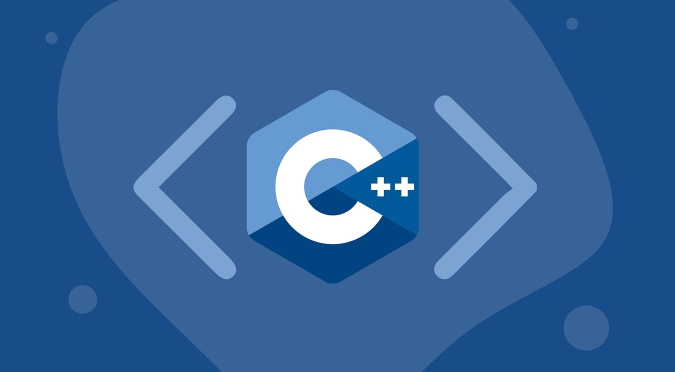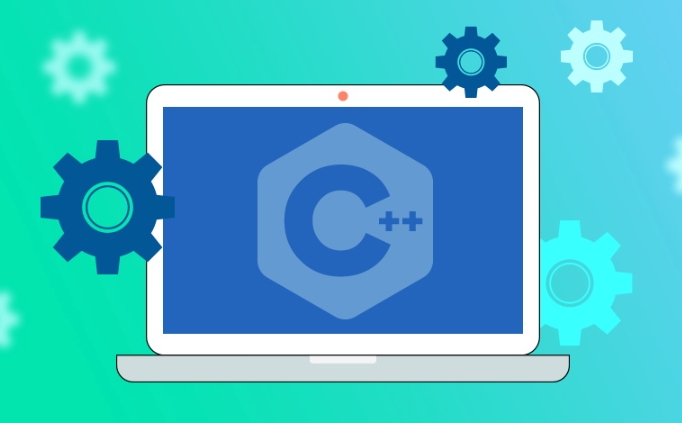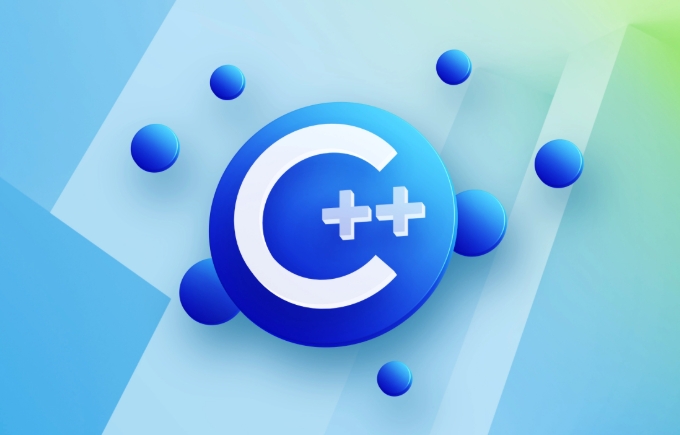The key to debugging C code is to understand the error type and use the right tools. First, common C errors are divided into three categories: syntax errors, logic errors and runtime errors. Among them, syntax errors are reported by the compiler. Logical errors need to be observed and positioned through variables. Runtime errors are often detected by tools if the array is out of bounds. Secondly, using a debugger (such as GDB or Visual Studio Debugger) to set breakpoints, step-by-step execution, view variables and call stacks to improve troubleshooting efficiency; in addition, printing logs (such as std::cout or log library) can assist in analyzing process and data changes; finally, pay attention to boundary conditions and memory management issues, and combine Valgrind, AddressSanitizer and other tools to detect memory leaks, illegal access and other hidden dangers. After mastering these methods, debugging will be more systematic and easy to use.

Debugging C code is actually a very common task, but many people always find it a bit difficult to start at the beginning. In fact, as long as you master the basic methods and tools, debugging is not a mysterious thing. The key is to understand the behavior of the program when it runs and to effectively locate the problem.

Understand common error types
Before you start debugging, you must first know what kind of problems you are facing. Common errors in C can be roughly divided into three categories:
- Syntax errors : such as spelling errors, missing semicolons, mismatch of brackets, etc. This type of error is usually reported by the compiler.
- Logical error : The program can run, but the result is wrong. For example, if the loop conditions are written incorrectly, the variable assignment order is reversed.
- Runtime error : The program crashes during running, such as accessing illegal memory, array out of bounds, null pointer dereferences, etc.
Understanding these error types will help you find problems more targetedly when debugging.

Step-by-step execution with the debugger
This is the most direct and effective debugging method. Common debuggers are GDB and Visual Studio Debugger. Using the debugger you can:
- Set a breakpoint (Breakpoint) to pause program execution
- Step Over / Step Into
- View the current value of the variable
- Watch Call Stack
To give a simple example, if you find that the result returned by a certain function is incorrect, you can set a breakpoint at the entry of the function, and then go down step by step to observe the changes of the intermediate variable.

Some tips:
- Don't set too many breakpoints at once, as it's easy to get confused
- Use the "Watch" function to monitor variable changes
- If the program crashes, see which function was called the last time in the call stack
Print log assisted troubleshooting
Sometimes it may be inconvenient to use the debugger, or you may want to quickly confirm whether a process has been executed. Printing the log is a simple but very practical method.
You can output key information through std::cout or log library (such as spdlog, glog). For example:
std::cout << "Value of x: " << x << std::endl;
It is recommended to add file name and line number information to facilitate subsequent positioning:
#define LOG(msg) std::cerr << __FILE__ << ":" << __LINE__ << " - " << msg << std::endl
Be careful not to add too many logs to frequent calls, otherwise it will affect performance.
Pay attention to boundary conditions and memory management
Manual memory management and pointer operation of C are prone to errors, especially pitfalls that newbies often step on include:
- Array out of bounds access
- Use uninitialized pointers
- Memory leak (forgot to delete after new)
- Repeat free
For these problems, in addition to regular debugging, tools can also be used to detect them, such as:
- Valgrind (a magic tool for checking memory problems under Linux)
- AddressSanitizer (supported by modern compilers, can quickly detect problems)
- Static analysis tools (such as Clang-Tidy)
If you find that the program crashes for no reason or behaves unstable, it is likely that it is a memory-related problem.
Basically that's it. Debugging is not something that can be achieved overnight, but after mastering the correct method, you will find that it is not complicated, it just requires a little patience and experience accumulation.
The above is the detailed content of Debugging C Code. For more information, please follow other related articles on the PHP Chinese website!

Hot AI Tools

Undress AI Tool
Undress images for free

Undresser.AI Undress
AI-powered app for creating realistic nude photos

AI Clothes Remover
Online AI tool for removing clothes from photos.

Clothoff.io
AI clothes remover

Video Face Swap
Swap faces in any video effortlessly with our completely free AI face swap tool!

Hot Article

Hot Tools

Notepad++7.3.1
Easy-to-use and free code editor

SublimeText3 Chinese version
Chinese version, very easy to use

Zend Studio 13.0.1
Powerful PHP integrated development environment

Dreamweaver CS6
Visual web development tools

SublimeText3 Mac version
God-level code editing software (SublimeText3)
 What is high-frequency virtual currency trading? The principles and technical implementation points of high-frequency trading
Jul 23, 2025 pm 11:57 PM
What is high-frequency virtual currency trading? The principles and technical implementation points of high-frequency trading
Jul 23, 2025 pm 11:57 PM
High-frequency trading is one of the most technologically-rich and capital-intensive areas in the virtual currency market. It is a competition about speed, algorithms and cutting-edge technology that ordinary market participants are hard to get involved. Understanding how it works will help us to have a deeper understanding of the complexity and specialization of the current digital asset market. For most people, it is more important to recognize and understand this phenomenon than to try it yourself.
 Explain RAII in C
Jul 22, 2025 am 03:27 AM
Explain RAII in C
Jul 22, 2025 am 03:27 AM
RAII is an important technology used in resource management in C. Its core lies in automatically managing resources through the object life cycle. Its core idea is: resources are acquired at construction time and released at destruction, thereby avoiding leakage problems caused by manual release. For example, when there is no RAII, the file operation requires manually calling fclose. If there is an error in the middle or return in advance, you may forget to close the file; and after using RAII, such as the FileHandle class encapsulates the file operation, the destructor will be automatically called after leaving the scope to release the resource. 1.RAII is used in lock management (such as std::lock_guard), 2. Memory management (such as std::unique_ptr), 3. Database and network connection management, etc.
 C vector get first element
Jul 25, 2025 am 12:35 AM
C vector get first element
Jul 25, 2025 am 12:35 AM
There are four common methods to obtain the first element of std::vector: 1. Use the front() method to ensure that the vector is not empty, has clear semantics and is recommended for daily use; 2. Use the subscript [0], and it also needs to be judged empty, with the performance comparable to front() but slightly weaker semantics; 3. Use *begin(), which is suitable for generic programming and STL algorithms; 4. Use at(0), without manually null judgment, but low performance, and throw exceptions when crossing the boundary, which is suitable for debugging or exception handling; the best practice is to call empty() first to check whether it is empty, and then use the front() method to obtain the first element to avoid undefined behavior.
 How to develop AI-based text summary with PHP Quick Refining Technology
Jul 25, 2025 pm 05:57 PM
How to develop AI-based text summary with PHP Quick Refining Technology
Jul 25, 2025 pm 05:57 PM
The core of PHP's development of AI text summary is to call external AI service APIs (such as OpenAI, HuggingFace) as a coordinator to realize text preprocessing, API requests, response analysis and result display; 2. The limitation is that the computing performance is weak and the AI ecosystem is weak. The response strategy is to leverage APIs, service decoupling and asynchronous processing; 3. Model selection needs to weigh summary quality, cost, delay, concurrency, data privacy, and abstract models such as GPT or BART/T5 are recommended; 4. Performance optimization includes cache, asynchronous queues, batch processing and nearby area selection. Error processing needs to cover current limit retry, network timeout, key security, input verification and logging to ensure the stable and efficient operation of the system.
 C bit manipulation example
Jul 25, 2025 am 02:33 AM
C bit manipulation example
Jul 25, 2025 am 02:33 AM
Bit operation can efficiently implement the underlying operation of integers, 1. Check whether the i-th bit is 1: Use n&(1
 C Standard Library Explained
Jul 25, 2025 am 02:11 AM
C Standard Library Explained
Jul 25, 2025 am 02:11 AM
The C standard library helps developers improve code quality by providing efficient tools. 1. STL containers should be selected according to the scene, such as vector suitable for continuous storage, list suitable for frequent insertion and deletion, and unordered_map is suitable for fast search; 2. Standard library algorithms such as sort, find, and transform can improve efficiency and reduce errors; 3. Intelligent pointers unique_ptr and shared_ptr effectively manage memory to avoid leakage; 4. Other tools such as optional, variant, and function enhance code security and expressiveness. Mastering these core functions can significantly optimize development efficiency and code quality.
 C function example
Jul 27, 2025 am 01:21 AM
C function example
Jul 27, 2025 am 01:21 AM
Functions are the basic unit of organizing code in C, used to realize code reuse and modularization; 1. Functions are created through declarations and definitions, such as intadd(inta,intb) returns the sum of the two numbers; 2. Pass parameters when calling the function, and return the result of the corresponding type after the function is executed; 3. The function without return value uses void as the return type, such as voidgreet(stringname) for outputting greeting information; 4. Using functions can improve code readability, avoid duplication and facilitate maintenance, which is the basic concept of C programming.
 Understanding the C ABI
Jul 24, 2025 am 01:23 AM
Understanding the C ABI
Jul 24, 2025 am 01:23 AM
C ABI is the underlying rule that the compiler follows when generating binary code, which determines mechanisms such as function calls, object layout, name adaptation, etc. 1. It ensures that different compilation units interact correctly, 2. Different compilers or versions may adopt different ABIs, affecting dynamic library links, STL transfers, virtual function calls, etc. 3. Cross-platform development, long-term system maintenance, third-party library use and other scenarios need to pay special attention to ABI consistency, 4. ABI can be controlled through macro definitions and compilation options, and use tools to view the symbol table to judge consistency.






